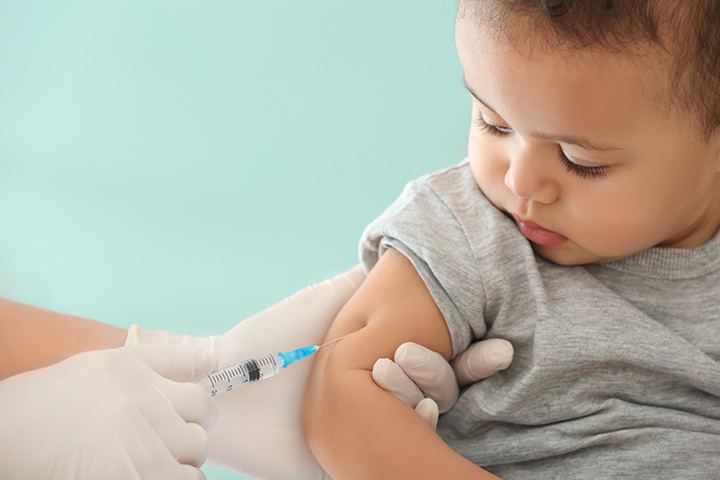Protecting your baby’s health is essential during their early months. Vaccines play a crucial role in preventing severe and potentially life-threatening diseases. This guide provides information about the recommended immunization schedule for babies at the 6-week, helping you make informed decisions about your child’s health.
Diseases Your 6-week Baby Should Get Vaccines For
- Diphtheria, Tetanus, and Pertussis (DTaP)
Recommended immunization: The first dose of five
The DTaP vaccine protects against three severe diseases: diphtheria, tetanus, and whooping cough (pertussis). Given the vulnerability of babies to these diseases, the initial dose is crucial, with subsequent doses increasing immunity.
- Hib (Haemophilus Influenzae type b)
Recommended immunization: The first dose of three or four
Hib disease, caused by the bacteria Haemophilus influenzae type b, poses a significant threat to babies and young children. The Hib vaccine, administered in three or four doses, safeguards against potential lifelong disabilities and fatal outcomes.
- Hepatitis B
Recommended immunization: The second dose of three
Hepatitis B, a potentially severe infectious disease leading to liver damage and cancer, can be a lifelong burden if contracted at birth. The hepatitis B vaccine, administered in three doses, is the most effective preventive measure against this disease.
- Pneumococcal
Recommended immunization: The first dose of four
Pneumococcal disease can result in severe and deadly infections. The pneumococcal conjugate vaccine, administered in four doses, offers protection against the bacteria responsible for pneumococcal disease.
- Polio
Recommended immunization: The first dose of four
Polio, a disabling and life-threatening disease caused by poliovirus, attacks the spinal cord and can lead to paralysis. While it primarily affects children under 5, anyone can contract it without proper immunization. The polio vaccine, with continued use, has successfully eradicated polio in many countries, including India.
- Rotavirus
Recommended immunization: The first dose of two or three
Rotavirus, a dangerous and potentially lethal virus for babies and young children, can be prevented with the rotavirus vaccine. Administered in two or three doses (based on the brand), this vaccine is a crucial defense against this gastrointestinal infection.
- Respiratory Syncytial Virus (RSV) Disease
Recommended immunization: One dose
RSV, a common respiratory virus, can be especially dangerous for babies and young children. They might have trouble eating and breathing, and in rare circumstances, they might need hospital care for hydration or respiratory support. The RSV immunization that uses monoclonal antibodies offers additional protection from autumn to spring when RSV is most common.
How Can You Care for Your Child After 6-Week Vaccinations?
After receiving 6-week vaccinations, your baby may experience mild reactions. Providing extra care during this time is essential.
- Give your little one extra care and attention:
Observe your baby closely for a few days, and contact the doctor if you notice anything concerning.
- Read the vaccine information sheets:
Understanding potential side effects is crucial. The information sheets provided by the doctor offer valuable insights into what to expect.
- Swaddle and offer more breastmilk or formula:
Some babies may eat less in the 24 hours following vaccinations. Swaddling and offering frequent feeds can provide comfort.
- Address mild reactions:
Mild reactions, such as pain at the injection site or a rash, are normal and usually temporary.
- Use a cool, damp towel or cloth to minimize redness, soreness, and swelling.
- Lower fever with a cool sponge bath.
- Consult your baby’s doctor before administering any non-aspirin pain relievers.
Following a well-structured 6-week vaccination schedule is essential in fortifying your baby’s immune system. Prioritizing vaccinations and providing extra care post-vaccination can contribute significantly to your baby’s overall health and well-being.

